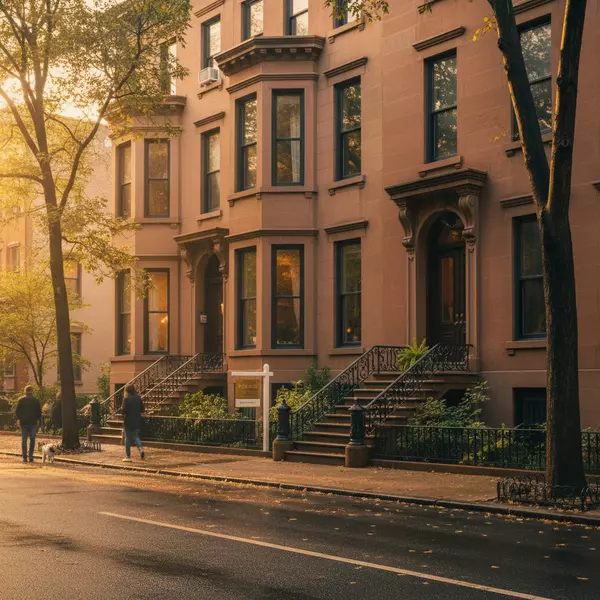Does Owning a Home Protect You From Deportation? Unpacking a Common Misconception Among Immigrant Homeowners
For many undocumented immigrants in the United States, the decision to buy a home represents much more than a financial investment. It symbolizes stability, belonging, and hope for a future in the country they’ve worked hard to call home. But with that aspiration comes a widespread and dangerous misconception: the belief that owning property provides a layer of protection against deportation or, if deported, increases the chances of being allowed to return.
If you or someone you know believes this, you’re not alone. It’s a question that real estate agents, immigration attorneys, and advocates frequently hear. So let’s talk about it—clearly, honestly, and with compassion.
The Belief: "If I own a home, I’m less likely to be deported."
At first glance, it might seem reasonable. Owning a home reflects a deep level of financial and emotional investment in the U.S. It suggests you have roots, community ties, and responsibilities that go far beyond temporary work or short-term living arrangements.
However, the unfortunate truth is that immigration enforcement policies do not take property ownership into account when making deportation decisions. The notion that your home can protect you from removal is not only false—it can create a dangerous false sense of security.
What the Law Actually Says
Immigration law in the U.S. is based on legal status, not on property ownership. Regardless of how long you’ve lived in the U.S., how many taxes you’ve paid, or how many properties you own, your risk of deportation hinges on your immigration status.
Legal experts and immigration authorities agree: owning a home does not provide legal protection from deportation.
Here are some key facts to consider:
-
Deportation does not impact property rights. If you are deported, you still legally own your home. However, you may have to manage it from abroad, through a family member, attorney, or property manager.
-
Over 3.4 million undocumented immigrants in the U.S. are homeowners. That’s roughly 31% of the undocumented population. This widespread homeownership has not translated to any form of legal safeguard.
-
Immigration enforcement agencies do not consider property ownership in removal decisions. Deportation priorities are based on status, criminal history, and national policy—not asset ownership.
Where This Misconception Comes From
So why does this myth persist? There are a few reasons:
1. Financial Integration = Community Ties
Many undocumented homeowners believe that investing in a property shows their commitment to the U.S.—and that this commitment will be rewarded with leniency. While it’s true that long-term residency and community involvement can be factors in certain legal processes (like cancellation of removal), they are not guarantees, and property ownership alone is not enough.
2. Confusion Around ITIN Loans
Many undocumented immigrants use Individual Taxpayer Identification Numbers (ITINs) to buy homes and pay taxes. Some believe that this form of financial documentation might offer protection. In reality, ITINs were created to allow non-citizens to comply with tax laws—not to provide immigration benefits. In fact, the government has occasionally used tax data to locate individuals with outstanding removal orders.
3. Misinformation and Anecdotes
Stories of individuals who avoided deportation—or were allowed back after deportation—often circulate without the full legal context. These anecdotal successes may have involved other factors (such as family ties to U.S. citizens or humanitarian relief options), but the presence of property ownership is rarely the reason.
4. A Hopeful Assumption
In communities where legal resources are limited, and fear of deportation is high, people tend to cling to the idea that their sacrifices and contributions must count for something. It’s an emotionally driven belief rooted in hope, not fact.
Real Risks Faced by Undocumented Homeowners
Buying a home as an undocumented immigrant is already a complex process. The added belief that your home somehow shields you can lead to misinformed decisions. Here’s what you should be aware of:
-
You are still at risk of deportation. Even if you’ve owned a home for decades.
-
You may lose access to your home temporarily. Deportation can make it hard to pay the mortgage, collect rent, or manage your property.
-
Homeownership does not offer legal leverage in court. It’s not a valid defense against removal unless coupled with other exceptional circumstances.
What You Can Do Instead
If you're undocumented and own a home—or are planning to buy one—there are still practical and proactive steps you can take:
1. Know Your Rights
Understand that property ownership and legal status are separate matters. Owning a home doesn’t make you immune to immigration law.
2. Seek Legal Counsel
Consult an immigration attorney who can evaluate your case for possible legal pathways—such as asylum, cancellation of removal, or adjustment of status through family-based petitions.
3. Establish a Legal Plan for Your Property
Prepare for the possibility of having to manage your property from outside the U.S. Assign a power of attorney, establish a trust, or identify someone you trust to manage your affairs if needed.
4. Stay Informed
Immigration laws change often. Stay updated through verified legal organizations, not social media hearsay. And share accurate information with others in your community.
5. Engage in Advocacy
Support organizations and policies that push for immigration reform. Your story and your homeownership journey matter—and advocating for change can turn individual voices into collective power.
Conclusion
Let’s be clear: owning a home does not protect you from deportation, nor does it make returning after deportation easier. This common myth is not only inaccurate—it can be harmful if it stops people from seeking real legal protection.
As a real estate professional who deeply values immigrant communities, we want to open up conversations that matter. If you’re a homeowner or thinking of becoming one, don’t rely on myths to guide your decisions. Let’s talk about the facts, your rights, and how to protect both your home and your future.
If you have questions or need guidance on homeownership as an undocumented immigrant, contact us or speak to an immigration lawyer. We’re here to help you make informed, empowered decisions.
Brooklyn Home Sweet Homes is committed to supporting all homeowners—including those navigating the challenges of undocumented status. Let’s build security through knowledge, not assumptions.
Categories
Recent Posts










